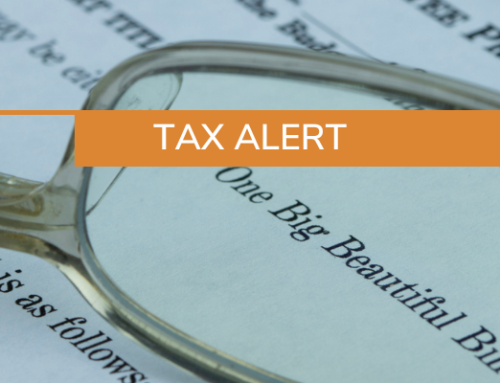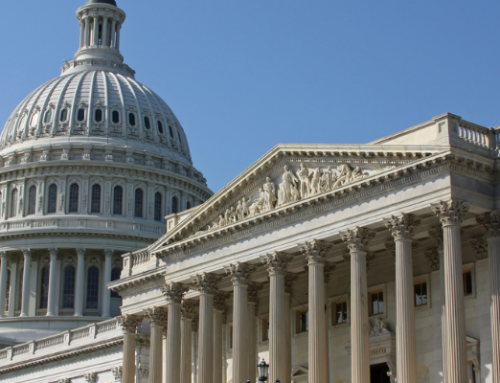Please see our most recent article for the latest updates on this topic:
North Carolina Budget Allows PPP Deductions, Reduces Tax Rates, Establishes SALT Workaround
This summer, North Carolina is facing the prospect of major tax reform for corporate and individual taxpayers. House Bill 344 has been through both chambers and is likely to be included in the state’s final budget. Though Governor Cooper has expressed he will not support the tax cuts, the proposal seems likely to have enough support for a veto override. If passed, North Carolina would join seven other states that don’t tax corporate income.
Corporate Tax Reform Notes
The biggest piece of potential corporate tax reform in North Carolina is phasing out and eventually eliminating the corporate income tax. The current rate is already the lowest among states that continue to tax corporate income, and was lowered to 2.5 percent from 6.9 percent in 2019.
Beginning in 2024, the corporate income tax rate would begin to phase out over five years, and by 2028, be eliminated entirely. Several tax experts agree that this measure would help to spur growth and make North Carolina more competitive; however, business taxes on pass-through entities would remain.
To help alleviate the tax burden on pass-through entities compared to corporate entities, North Carolina is poised to adopt a new state and local tax (SALT) cap workaround. Under the proposal, partnerships and shareholders would avoid the $10,000 deduction limit on their personal returns that was imposed in the Tax Cuts and Jobs Act by electing annually to instead pay an optional pass-through entity NC tax on their business returns. A growing number of other states already have similar SALT Cap workarounds in place, including South Carolina.
Next, the franchise tax would be simplified. Many states don’t even impose franchise taxes anymore, and of the ones that do, some are already phasing them out. In this case, North Carolina would eliminate two alternate property bases that are currently used to calculate franchise tax. Instead, franchise tax would be calculated solely on net income.
Finally, businesses that took out Paycheck Protection Program (PPP) loans have been eyeing the state legislation for signs that PPP expenses could be deducted. Based on guidance issued last July, we know that PPP expenses are non-deductible at the state level; however, the proposal would appropriate around $1 billion in federal funds to the Job Opportunity and Business Savings (JOBS) Grant Program as an alternative to allowing PPP expense deductibility. The JOBS Program would help state businesses that received COVID-19 assistance from certain programs like PPP, EIDL, the Restaurant Revitalization Fund, and other programs before June 30, 2021. Grant amounts would be based on 7.5% of the first $250,000 of assistance with a maximum grant of $18,750 and should be automatically distributed by September 30, 2021. It is expected that the number of businesses eligible for JOBS grants is more than double the number of businesses that would have benefited from having full PPP expense deductibility.
Individual Tax Reform Notes
On the personal tax side, individuals are set to have their personal income tax rates decrease and the standard deduction amounts increase.
North Carolina’s new personal income tax rate would be 4.99 percent, down from 5.25 percent. The standard deduction would increase to $25,500 for taxpayers married filing jointly and $12,750 for single filers, up from $21,500 and $10,750, respectively. The new tax rates would start in the 2022 tax year. One of the bill’s sponsors described the impact as a reduced tax burden of 50 percent for a family of four (married filing jointly) making $38,000 a year, or a 7.1 percent tax decrease for a family making $200,000 per year. It’s estimated that around 250,000 North Carolina taxpayers would be removed from the tax rolls with the higher standard deduction.1
Additionally, the state personal income tax child deduction would increase by $500 and eligibility for the deduction would expand.2
What We Can Expect Next
The proposal is back in the House, where it awaits a compromise from Senate changes. It seems likely that all or some of these changes will take effect as soon as 2022, so clients may want to begin alternate tax planning strategies now. We will also be tracking any 2020 and 2021 PPP expense deductibility changes during the House and Senate negotiations and will communicate those once a final decision has been made. There is still significant division as the House wants to allow full PPP expense deductibility and the Senate wants to replace PPP expense deductibility with the previously discussed JOBS grant program.
Businesses that received COVID-19 assistance and think they may qualify for the proposed JOBS Grant program can reach out to their PBMares advisor for guidance; funds should be automatically distributed once the program is ultimately approved, but that may not always be the case. Additionally, there are other proposed amendments that may affect clients such as allowing the full deduction of any limited interest expense deductions under Section 163(j) over 5 years and changes in net operating loss calculations for individual taxpayers.
As House Bill 334 is updated, we will continue to share news of how clients may be impacted.





